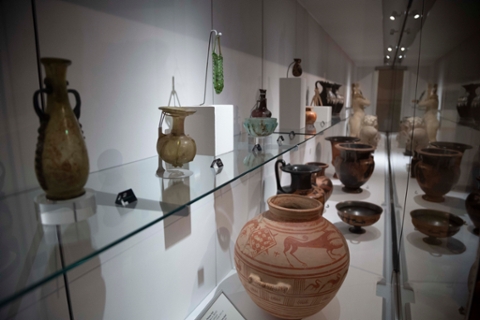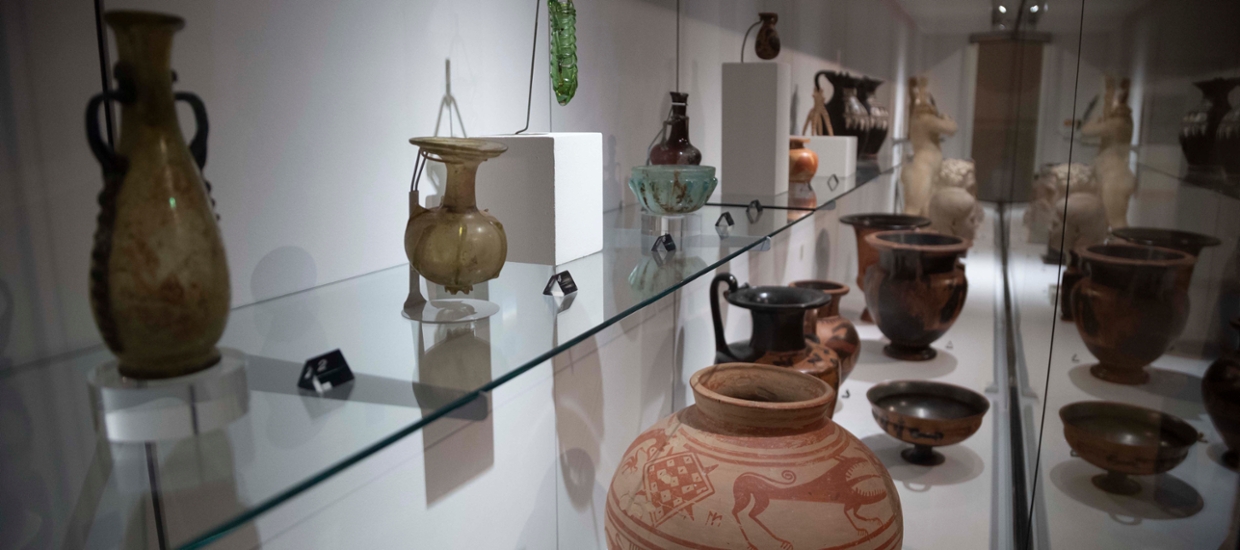Every effort will be made by museum staff to research the provenance of new acquisitions as thoroughly as possible prior to acceptance into the collection. The same will be done prior to the deaccessioning of any object. Such research should include, but is not limited to:
- The ownership history of the work of art;
- The countries in which the work of art has been located and when;
- The exhibition history of the work of art, if any;
- The publication history of the work of art, if any;
- Whether any claims to ownership of the work of art have been made;
- Whether the work of art appears in relevant databases of stolen works; and
- The circumstances under which the work of art is being offered to the museum.
Museum acquisitions must comply with all applicable local, state, and national laws, most notably those governing ownership and import of works of art, such as the National Stolen Property Act (NSPA), the Convention on the Cultural Property Implementation Act (CCPIA), sanctions enforced by the Office of Foreign Assets Control (OFAC), the Convention on International Trade in Endangered Species of Wild Fauna and Flora (CITES), and the Native American Graves Protection and Repatriation Act (NAGPRA). Since the status of a work of art under foreign law may bear on its legal status under U.S. law, the museum, in concert with the University of Miami’s Offices of General Counsel and Business Services, shall review relevant foreign laws before acquiring objects governed by foreign jurisdiction.
The museum will also conduct thorough research on collection objects prior to agreeing to lend to an international venue or borrower if the provenance of the object may become an issue during export and/or import of the object into or out of a foreign country. The goal of such research is to resolve any such issues in advance to the greatest extent possible; however, careful consideration must be given to lending any object with ambiguous provenance to another museum or educational institution.
In all instances, the museum shall carefully balance the possible financial and reputational harm and the potential for legal liability against the benefit of collecting, presenting, and preserving the work in trust for the educational benefit of present and future generations.
For works acquired pursuant to the above, the museum shall post identifying information, an image and all facts relevant to the decision to acquire it, including its known provenance, on the Association of Art Museum Directors' website, as well as the museum's website.
If the museum, as a result of its continuing research, gains information that establishes another party's right to ownership of a work, the museum shall bring this information to the attention of the party, and if the case warrants, initiate the return of the work to that party. In the event that a third party brings to the attention of the museum information supporting the party's claim to a work, the museum shall respond promptly and responsibly and take whatever steps are necessary to address this claim, including, if warranted, returning the work.
United Nations Educational, Scientific, Cultural Organization (UNESCO)
- The Lowe recognizes UNESCO’s Convention on the Means of Prohibiting the Illicit Import, Export, and Transfer of Ownership of Cultural Property as ratified by the United States Senate, and will not acquire any archaeological material or work of ancient art known to have been stolen from its country of origin, or otherwise removed in contravention of the laws of its country of origin, after 1970.
Nazi Era Provenance Research (NEPIP)
- During the Nazi era in Europe (1933-1945), the Nazi regime stole, confiscated, looted, pillaged, and destroyed art objects and other cultural property belonging to private citizens and museums throughout occupied Europe. Many of these works of art were sold to fund Nazi activities, while others were intended for inclusion in Hitler’s proposed state museums or the private collections of high-ranking Nazi party officials. After the war, thousands of works of art were recovered by the Allies and returned to their rightful owners; however, many others were never found or returned.
- With the recognition that such works of art may have made their way into the collections of museums in the United States, the establishment of complete provenance, or ownership history, of a work of art has become an increasing concern. Through programs of the American Association of Museums (AAM) and the Association of Art Museum Directors (AAMD) concerted efforts are being made to fully establish provenance for works of art dated to before 1946, and acquired after 1933, which may have changed hands in Continental Europe during the Nazi era. The Nazi-Era Provenance Internet Portal (NEPIP) has been established by AAM to facilitate this research and provide a centralized database of provenance information that is accessible to the general public.
- The provenance of any object proposed for acquisition, for which the above may apply, must be thoroughly researched by museum staff prior to acquisition approval, and the museum shall not acquire any object whose provenance is clearly questionable. All works of art already in the Lowe’s collection that fall within this time frame have been posted to the NEPIP, and any new acquisitions will also be listed.
Native American Graves Protection and Repatriation Act (NAGPRA)
- The museum fully recognizes the 1990 Native American Graves Protection and Repatriation Act (NAGPRA) governing the repatriation of Native American human remains and specified cultural property, and has informed all recognized tribes and cultural groups of the Museum’s holdings in these areas.
- The museum will not knowingly acquire any object whose ownership or legality is questionable, or whose circumstances of collection are not completely legal and ethical, and shall continue to comply with all NAGPRA requirements for disclosure, consultation, and repatriation for any future acquisitions.





